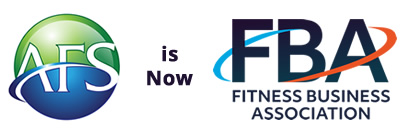
By Mike Jesowshek, Special AFS Contributor
It is tax season, every fitness studio owners favorite time of the year, right? Eh, probably not. If you are like most small business owners out there, you absolutely dread the following items:
- Thinking about taxes
- Handling the various personal and business tax forms
- Worrying about if you are doing everything correctly
- Sending in hard earned cash to the IRS
- And so much more…
Fortunately, tax season does not have to be all that bad. If you are going through another rough tax season right now (or planning to extend and push that pain down the road) you can make adjustments NOW to ensure you do not repeat this same path next year.
Keep Up to Date Books and Review Periodically
Tax anxiety is often triggered by fear that things are not being completed accurately. You can help alleviate this stress by keeping up with your bookkeeping and reviewing your work on a regular basis. All too often we see clients sit down and spend hours upon hours of rushing together books in late February or early March. First, most of that information is so dated that they do not even remember what the transactions were related to and second, a rush job never leads to anything good.
Spread that task out throughout the year so you can have an open mind when completing your bookkeeping and allow you to put more of your attention on the accuracy of what you are doing, instead of just focusing on completing by a deadline. With current books, you can spend a little bit of time each month or quarter going through your financials. By the time January rolls around, everything will already be completed and you will see that tax anxiety level drop tremendously.
Tax Plan Year-Around
The nice thing about having bookkeeping done throughout the year is that you can take that information to strategically tax plan throughout the year. At the end of the day, more attention should be focused on taxes throughout the year instead of just during tax season. Tax season is just the act of preparing and filing, however tax planning season is where you save taxes and fully prepare yourself for that filing. There are two things your planning should be focused on:
- Calculating and Paying Estimated Taxes
- Researching and Implementing Available Tax Saving Strategies
Typically, small business owners should be sending in estimated tax payments throughout the year to avoid any kind of interest or big bill come year-end. You can use your regular bookkeeping to help calculate what (if any) payments need to be made. If you are filing your return right about now and have a big amount due, you missed the boat on estimated taxes. These taxes are due on the following schedule:
- Quarter 1 Estimate – Due April
- Quarter 2 Estimate – Due June
- Quarter 3 Estimate – Due September
- Quarter 4 Estimate – Due January
Fortunately for you, you are a business owner. As a business owner, you are gifted with tons of opportunities to implement tax saving strategies that can save you thousands each and every year. Take advantage of this and research, throughout the year, what options are available to you. All too often we have a client come to us in March that missed out on a tax saving opportunity because they were not thinking about it until it was too late. Or we have a client that says “I only have net income of $10,000 so there are no savings available for me.” Wrong. Do not be that person stuck holding the bag, be proactive, implement the saving opportunities, and pay less in taxes.
At the end of the day, more attention should be focused on taxes throughout the year instead of just during tax season.
Gather Tax Documents and Keep Good Records
The tax anxiety for you this tax season may have been all the different forms, receipts, records, information that you had to collect and record. There are so many different things that go into a tax return and just having a good system to organize everything is key so that when it comes to filing you can pull out the requested information. Below we have a list of some items that are important to business owners and how you can gather them:
- Bank and Credit Card Statements – Download a digital copy from your bank and put on file so they are easily accessible if you need them down the road. There are also software options out there that will automatically pull these from your bank account.
- Receipts – These are going to be important because they help support your business expenses. Always keep receipts and be sure to always write on them the “who/what/where/why” so that you can backup the reason for the expense. You can organize them in a cloud based program or at the very least, keep a file folder broken down by month and year.
- Payroll Reports – If you have employees, download a year-end summary report from your payroll provider at year-end so that you have the full yearly details.
- Prior Year Returns – These can be very important when you are analyzing various tax situations. Be sure to keep a digital copy of all tax returns (both personal and business) so they can be referenced if needed.
- Tax Forms (W2, 1099, 1098, 1095, K-1, Student Loan Interest, Mortgage Interest, Real Estate Taxes, etc.) – Starting in January you will start to receive various tax forms from all different sources. As you get these in the mail, file them in a folder so that you can have them all in one place. If it looks important, it probably is.
- Medical Expenses, Charitable Contributions – As you have these types of transactions/items happen throughout the year, keep your receipts and records of them. If you have a lot of these transactions it would be good to keep an Excel file of them so it is easy to find your total number come tax season.
Seek Assistance If Needed
Finally, do not be afraid to seek assistance if needed. You are a fitness business owner, not an accountant or CPA, if you do not feel comfortable doing your bookkeeping, tax planning, tax preparation, tax filing, find someone that can assist you. There are even cloud based firms that will allow you to get all this done without having to leave your office or studio.
Conclusion
In conclusion, taxes stink but they do not have to be as stressful as they likely are for the majority of business owners. Start now while we are still in the first quarter and everything is fresh and implement the tips found in this article, you will thank yourself next tax season. Getting your taxes done does not have to be “taxing”, instead it can be a smooth and rewarding process that leaves you satisfied knowing you did everything legally possible to limit your tax liability. If you are interested in learning more about the topic above or any other bookkeeping or tax related items, send me a message, I would be more than happy to chat!
Mike Jesowshek, CPA is the founder of the accounting firm JETRO and Associates. He has a strong passion for both fitness professionals and technology. He helps provide a digital accounting, bookkeeping, and tax solution for studio and gym owners who are looking to take it to the next level by utilizing modern, cutting edge technology.


Join the Conversation!